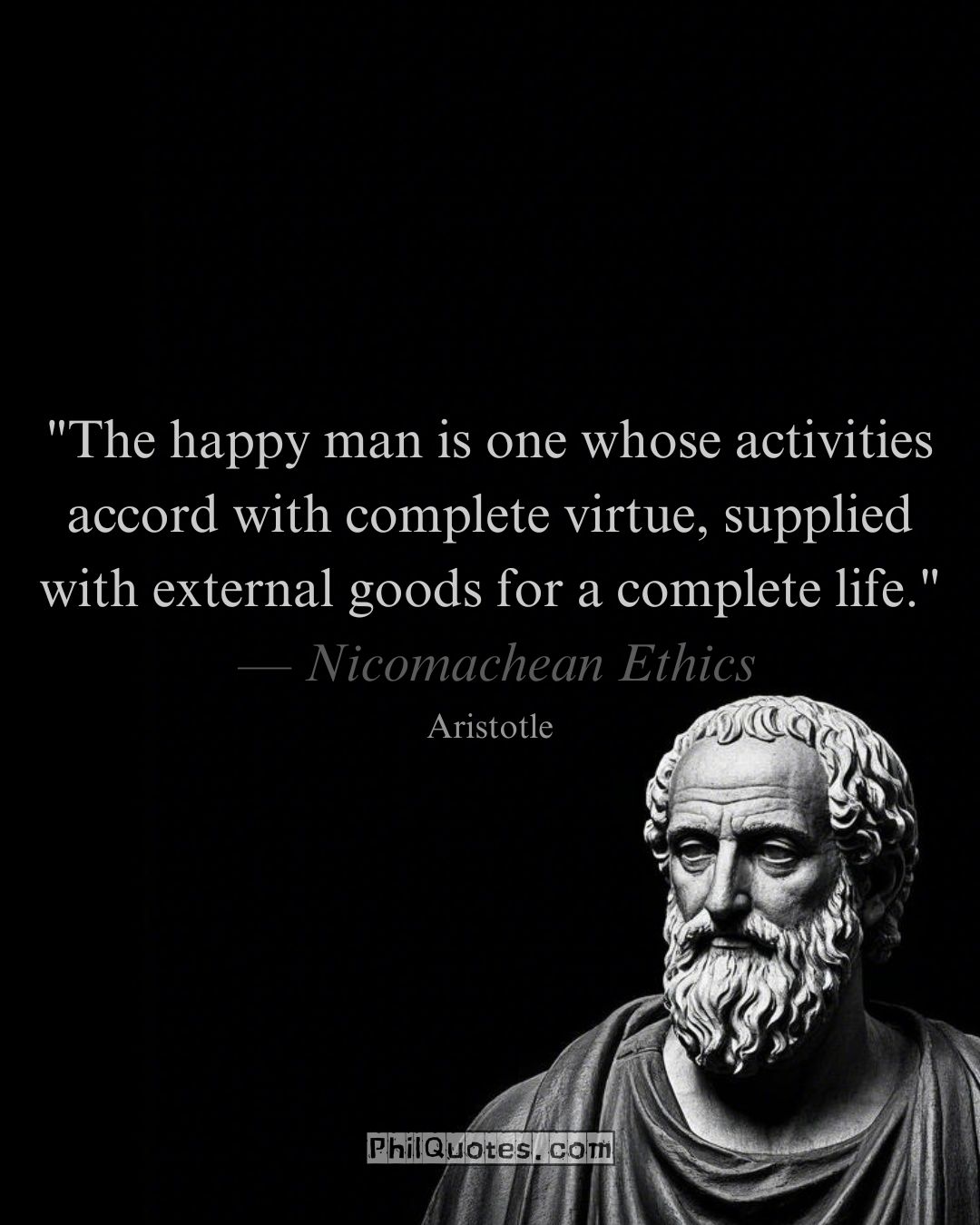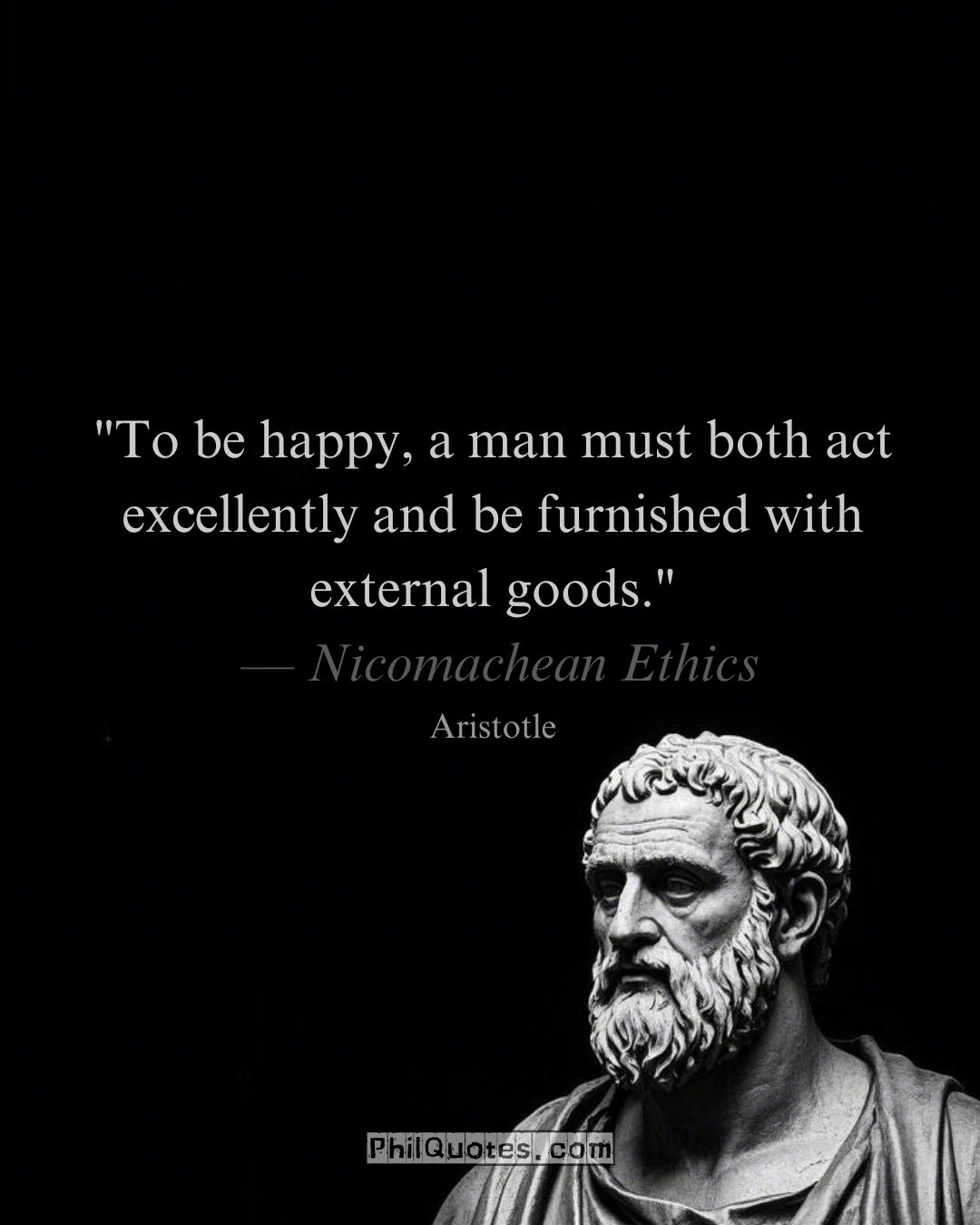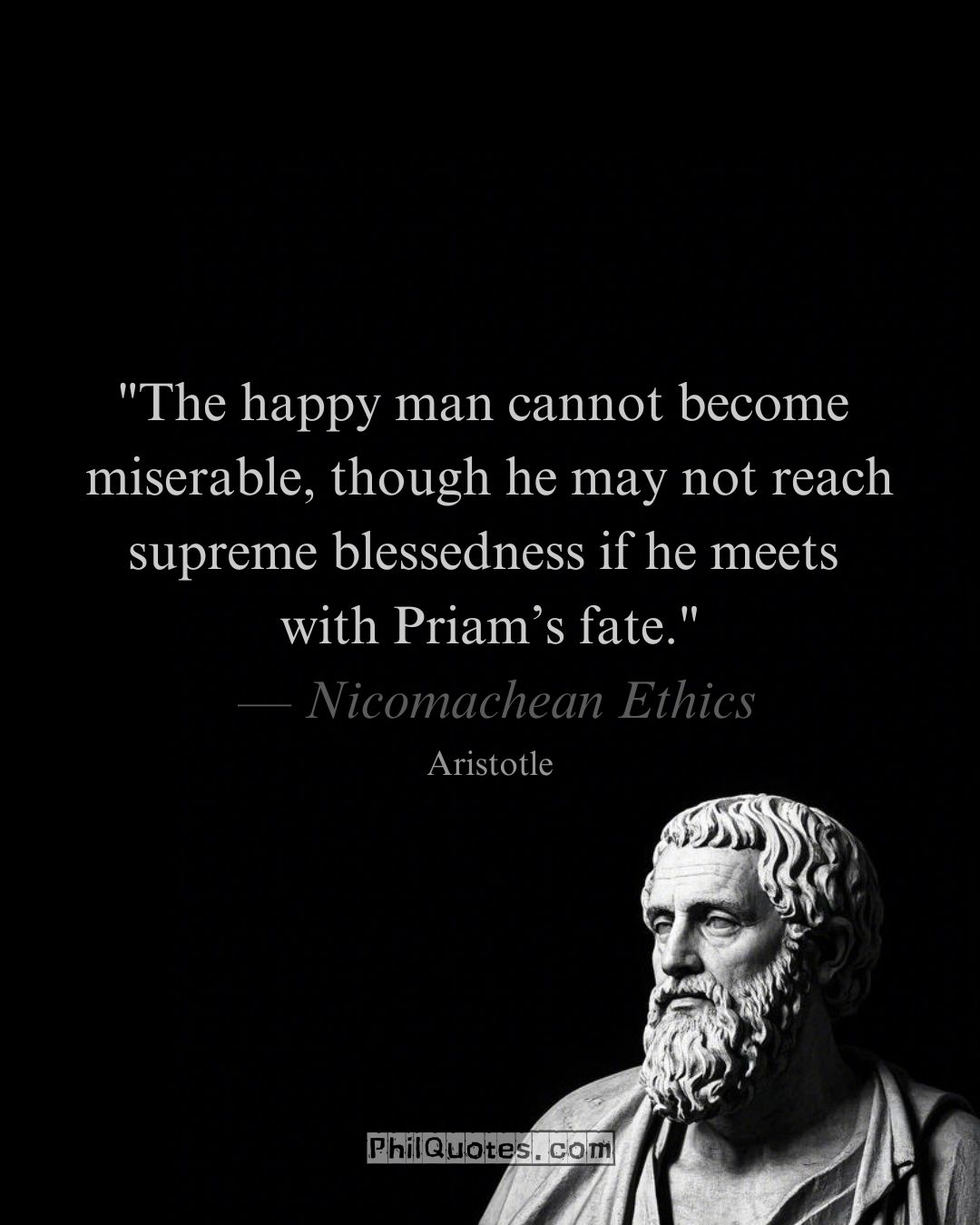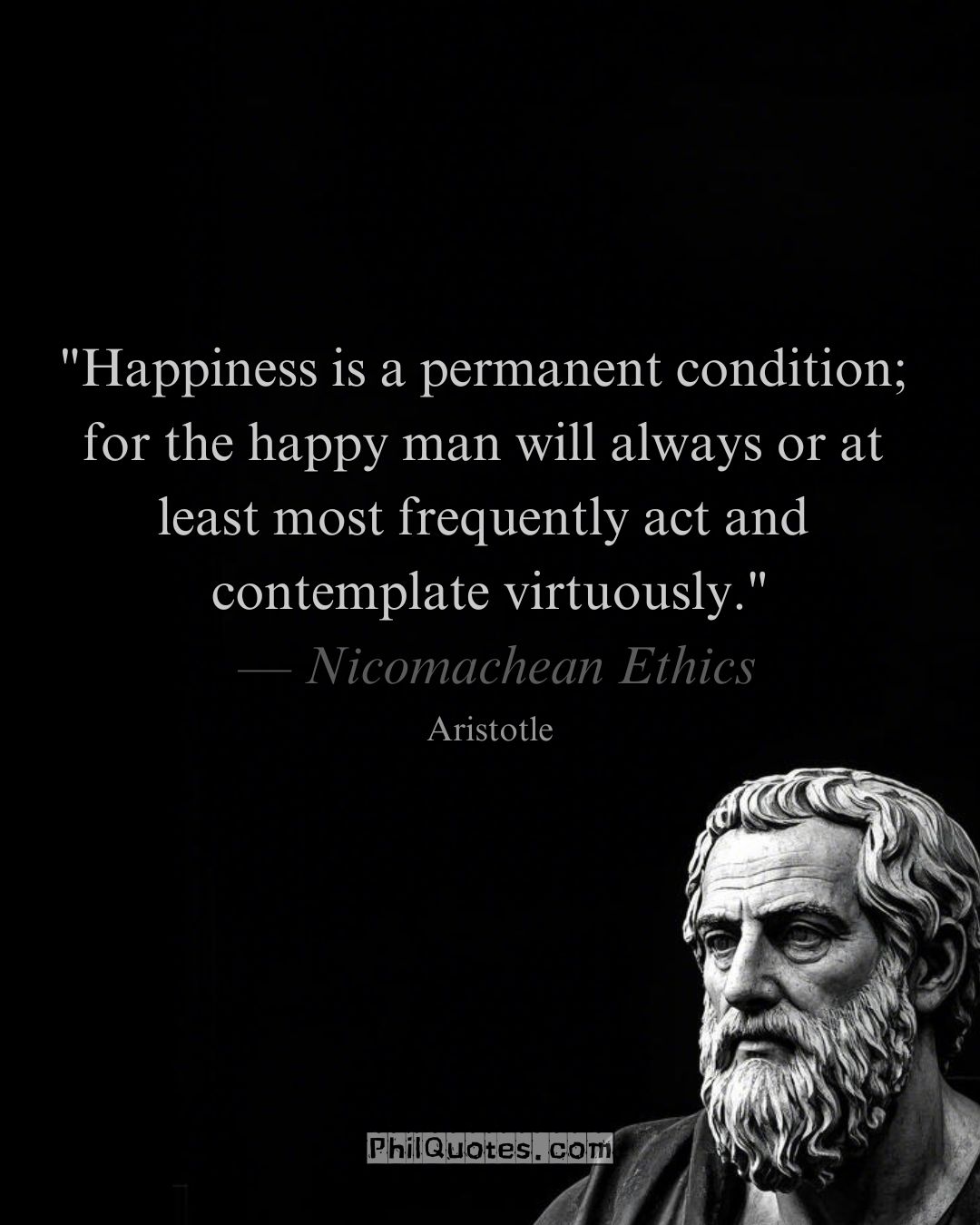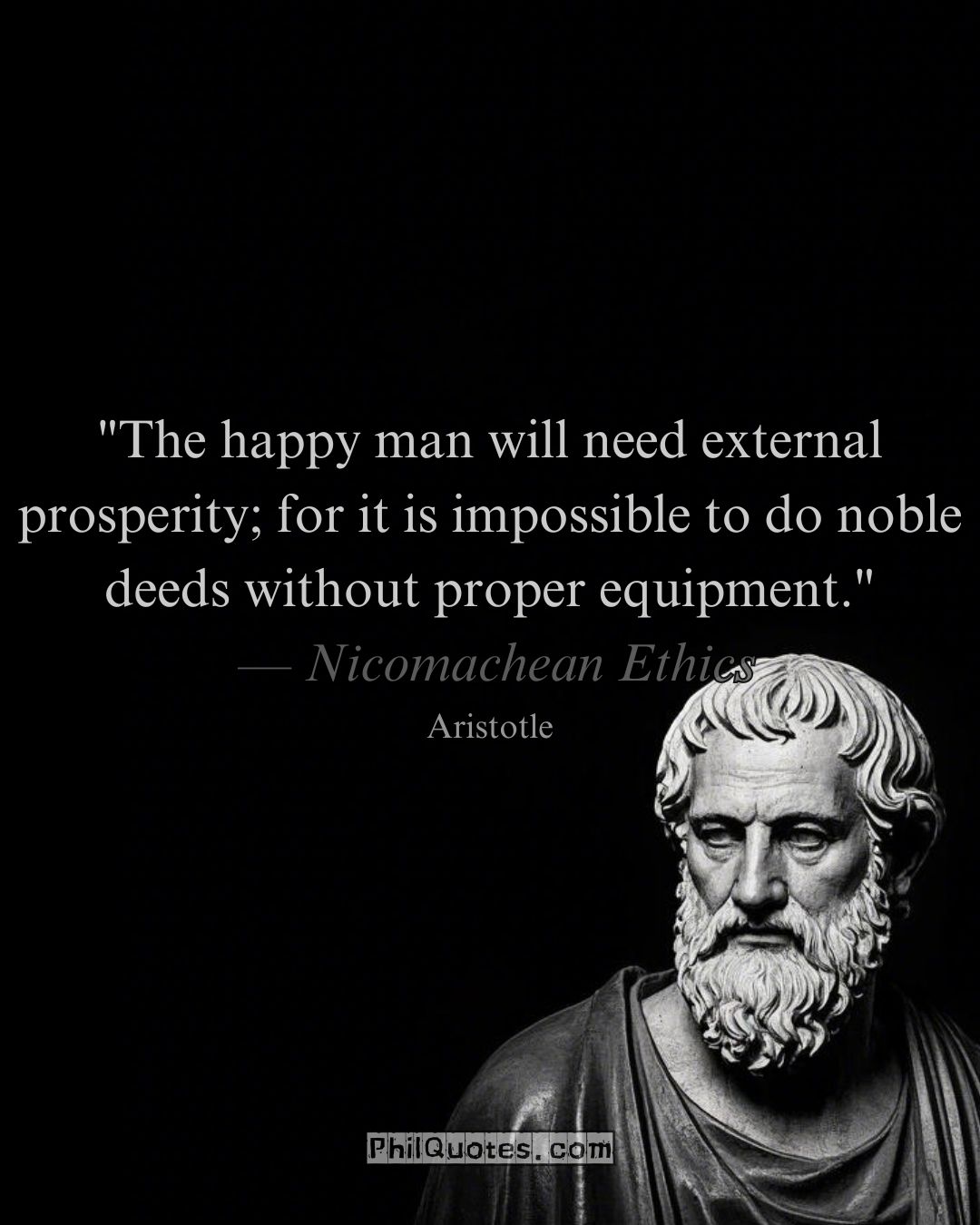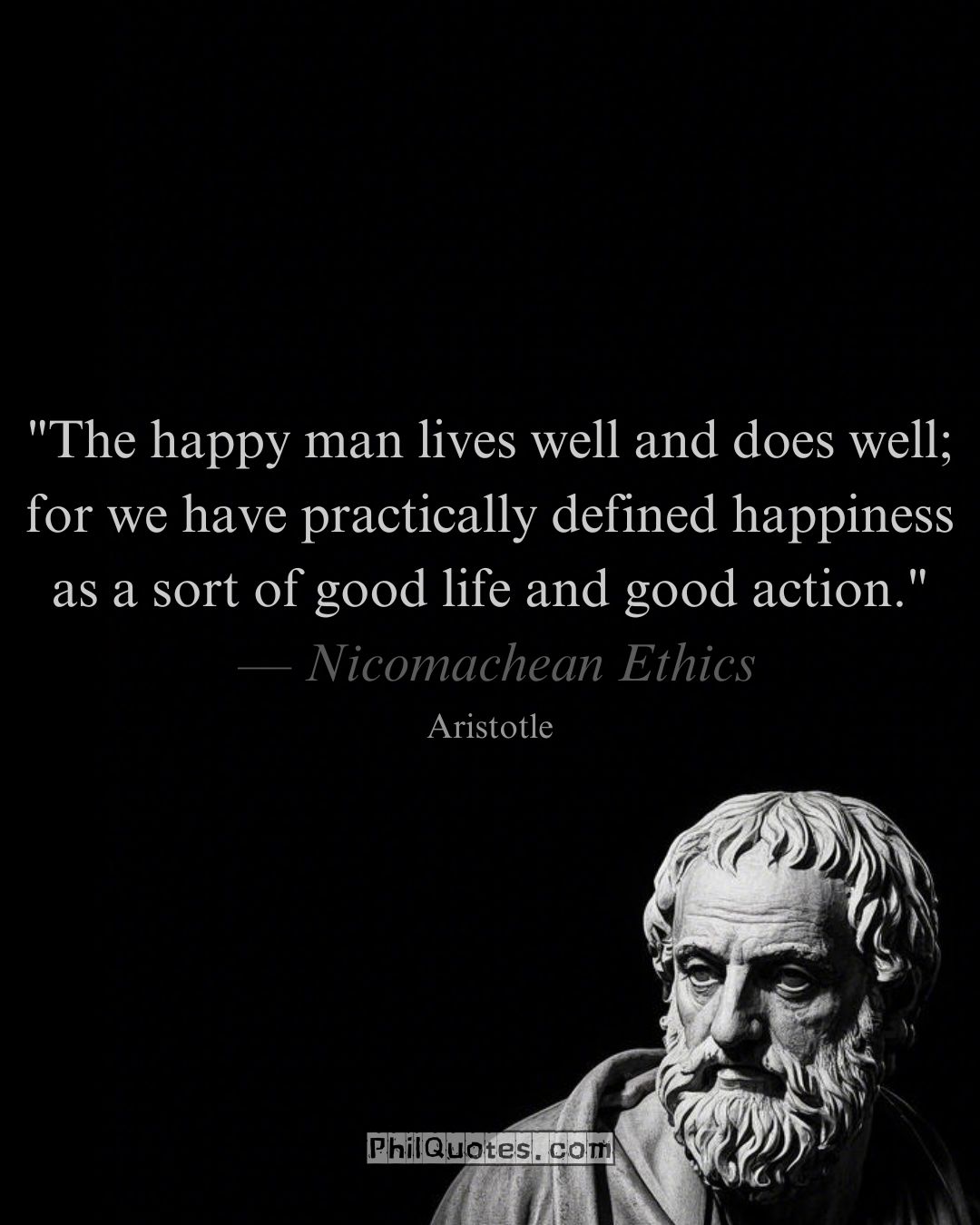Aristotle Nicomachean Ethics Quote: “The happy man is one whose activities accord with complete virtue, supplied with external goods for a complete life.”
“The happy man is one whose activities accord with complete virtue, supplied with external goods for a complete life.”— Aristotle, Nicomachean Ethics, Book I, Chapter 10 Explanation:Aristotle’s formula for happiness (eudaimonia) unites two dimensions: Real-World Connection:① Teacher’s Legacy →You mentor underprivileged students (virtuous action) → secure grants for scholarships (external support) → witness graduates lead … Read more
